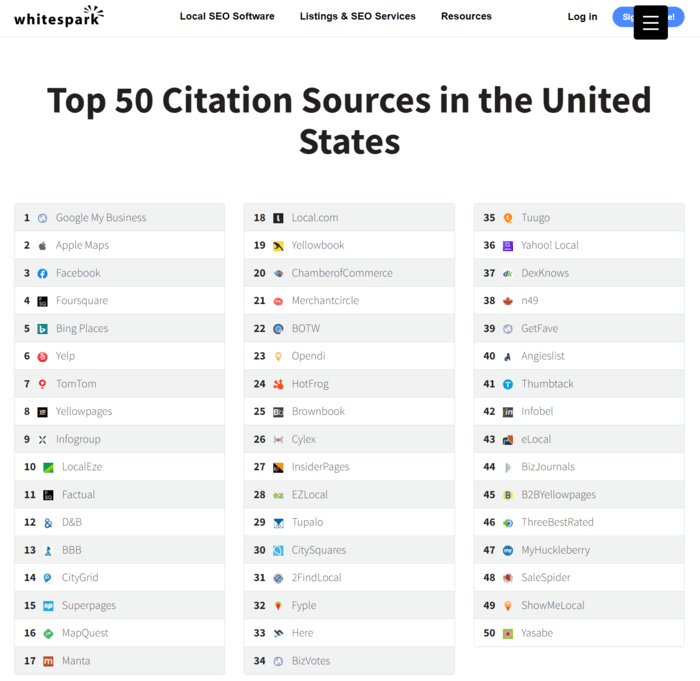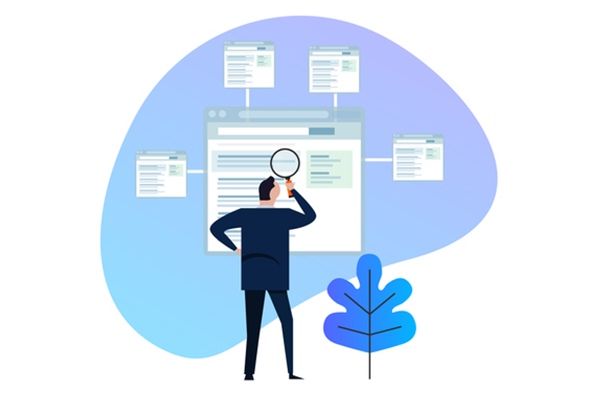
Quality Local Off-Page SEO is often what pushes the needle and makes one local business competitor outrank the other. Knowing what to do to make your business stand out and above the competition in the eyes of search engines can make all of the difference.
In this article, I am going to give you some of my best Local Off-Page SEO tips to help you get your local business leading the Google Maps 3 Pack and outranking your competitors!
Before I get into the meat of this article, I have a quick suggestion. If you found this article because you are trying to learn Local Off-page SEO, I recommend you read my article “What Is Off-Page Local SEO?“. My article “Is Off-Page SEO Worth It For Local Businesses?” might also be important to read.
Fill Out Google Business Profile (GBP) Correctly
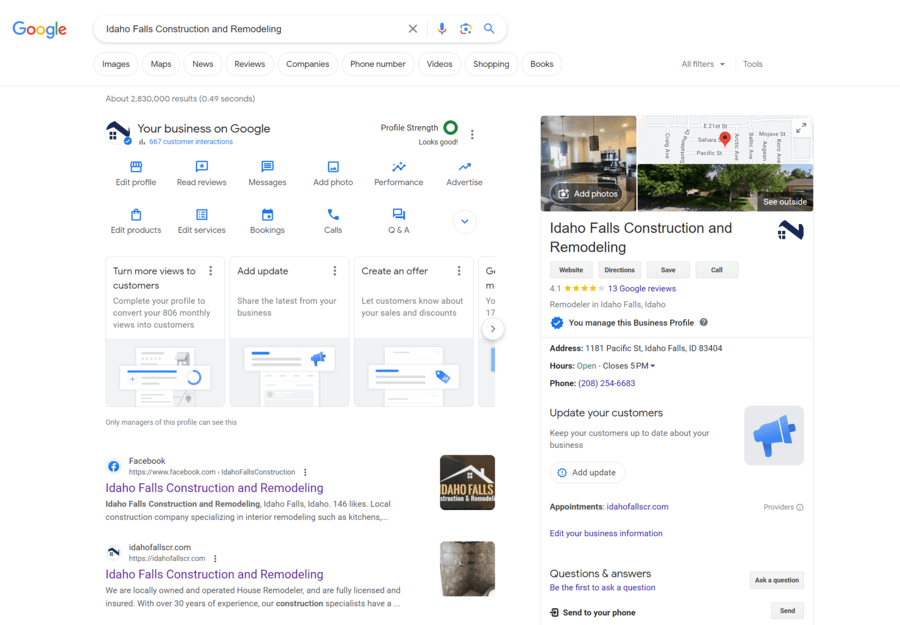
Yes, how you fill out your Google Business Profile really does make a ranking difference.
1. Fill It Out Completely
The first rule for creating or filling out any business profile online is to fill that thing out as completely as you can.
Websites and search engines judge you based on the information they can find, and they don’t view less information as good. The more you fill things out, the more legitimate you look, and the more search engines will trust you.
2. Include A Lot Of Relevant Pictures
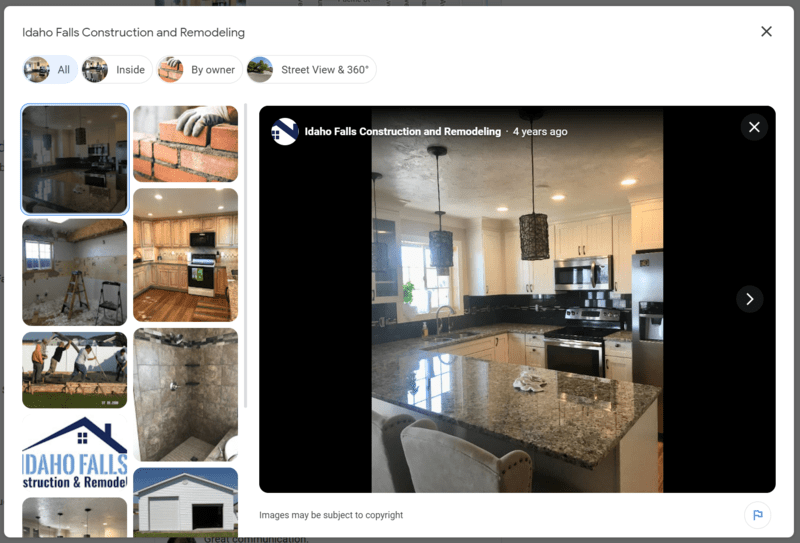
GBP asks for quite a few types of images. They want the exterior of the business, interior, and pictures showing your staff, etc. You want to take and upload as many of each type of photograph as they give you options.
And name the images for what they are, similar to what GBP calls that type of image. Include industry and location keywords in the titles where possible and appropriate.
Also, be sure to geo-tag and optimize your images before you upload them. Google will erase some or all of that data as you upload it, but it will recognize it and know what it is. It seems to add credibility to your business when you do that.
3. Include A Lengthy Keyword Rich Specific Business Description
Google looks at the words that you include in the GBP. They matter. The keywords you enter in your business description help Google identify the searches it should show your business for.
Remember, more information is better. Giving a long business description allows you to be specific about your services and naturally fit in more industry and location keywords.
4. Teach Your Customers To Leave Keyword Rich Reviews
This can seem overwhelming at first, but it will give you an edge over your competition. Even more than with the GBP business description, Google looks at the keywords used in customer reviews as one indicator of what search terms to show your business listing for.
The most simple way to do this is to have a routine where whenever you know you have a happy customer, you ask them to leave you a review. And you give them a little cheat sheet listing the products or services you provided for them.
Simply ask them to mention each of the services you have listed on the cheat sheet and your business name, city, and state.
5. Build Out The GBP Website
Set it up and put in enough content like you would for a real website. Again, this allows you to target all keywords you want to rank for.
It gives you the opportunity to link both your GBP as well as to relating pages on your actual business website. You should also link to your best business directory and social media profiles. This will help Google connect the dots and fully understand your digital footprint.
It’s also great to post regularly on your GBP website and share those posts on your other social media business pages.
Fill Out Business Directory & Social Media Profiles Correctly
Most local businesses in most industries list their business in the most popular business directories and social media websites. If this is true for your industry, and you don’t do it, the search engines will think something strange is up with your business. They won’t trust your website as much.
1. Start With The Most Authoritative List
Whitespark publishes this list of their top 50 business directory and social media websites they think it is important to be on. Moz.com publishes this list of the most important to be in based on your industry.
And BrightLocal.com publishes this list, which is very similar to the previous two. Each list is different enough that I would go through each and try to get your business listed in each.
2. Be Sure Your Business NAP Is Consistent
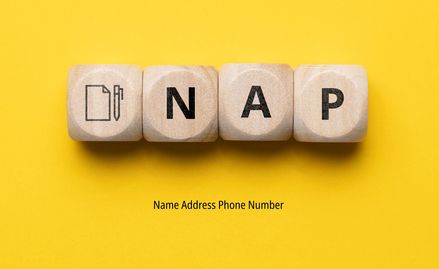
Wherever you list your business’s name, address, and phone number online, it needs to be identical. I detail how to do this in my article “How to Build Local Citations – A Complete Guide!“
But the bottom line is you want to type your business address into Google and do a search. Google will then show you your address, but they might abbreviate for street (St), etc. However, Google lists your address; that is how you want to list it on your GBP, your website, and in every business directory and social media site you create a profile in, anywhere you list it on the internet.
3. Fill Out Business Directory & Social Media Profiles Completely

This is what I call building an authoritative online digital footprint. Just like I described above about how you fill out your Google Business Profile (GBP), you want to do the same with your Bing and Yahoo profiles as well as every social media site and business directory you list your business in.
Whatever they ask for, give them the information. Give them every time you can photograph for your business, and geo-tag and optimize each image.
And be sure to write out original (if possible), lengthy, well-written, keyword-rich business descriptions for each website you put your information on.
Acquire High Authority Relevant Backlinks

When an authoritative website that you do not own or control links to your website, the search engines see that as the website vouching for and recommending your site.
They pass authority from their website to yours. This is how you build up your website’s authority. The more authority your website has, the easier it will be for you to outrank your competitors.
1. Contact Websites Related To Your Industry & City
I go into how to do this in more detail in my article “How Do I Acquire High Authority Backlinks?“. But the long and short of it is you identify high authority websites from your industry (such as industry magazines or associations) and from your city (such as city magazines and associations).
Then you contact them and offer to write an article for them or to pay them for a link from their website to yours. You don’t want it to be a regular ad if you pay them. Those are not as powerful. You are looking for a contextual link from an article on their website that mentions you and links to your website.
2. Look At Competitor Backlinks For Ideas
If you use an SEO tool such as Ahrefs or Semrush, you can find out what relevant websites link to your competitors that are outranking you, and contact the websites and try to get a link on their site to your site. You want to have at least as many high authority relevant contextual backlinks to your website as your competitors, preferably more.

